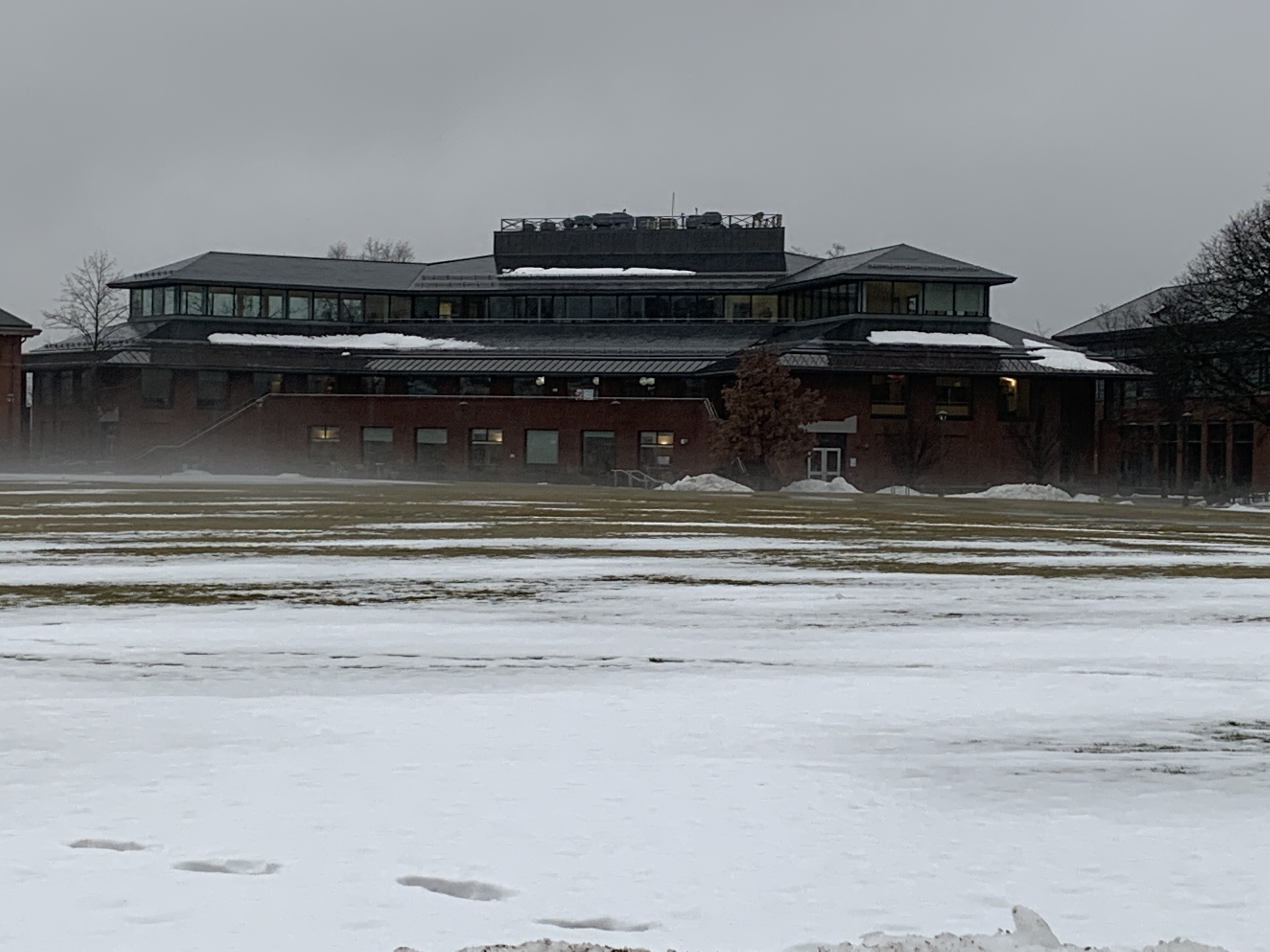
Following a week-long delay to the start of the spring semester, the University has instituted stricter COVID-19 restrictions for the return to campus and first week of classes compared to those at the beginning of the fall. Isolation procedures have been modified, social gatherings are discouraged, and indoor dining will not resume until Monday, Feb. 7 at the earliest. As of Thursday, Feb. 3, there are 23 active student cases and three active employee cases on campus.
According to Dean of Students Rick Culliton, these changes reflect a new approach to COVID-19 that places a greater emphasis on minimizing long-term disruptions to campus life. Although COVID-19 cases on campus are higher than last semester, Culliton reports that in most instances, infected students experience either mild symptoms, or no symptoms at all.
As COVID-19 cases nationwide rose over winter break, President Michael Roth ’78 announced in an all-campus email that classes would begin on Thursday, Jan. 27, a week later than originally planned. Additionally, the first two days of classes were moved online to allow students to receive their COVID-19 test results before beginning in-person classes on Monday, Jan. 31. According to Culliton, this delay was intended to avoid the peak in COVID-19 cases from the Omicron variant.
“Based upon the guidance of public health experts with whom we consulted, our plans were modified to start the semester a bit later with the hope of getting beyond the peak of Omicron COVID cases,” Culliton wrote in an email to The Argus. “This appears to have been successful so far.”
While adjusting semester plans to accommodate the rise in COVID-19 cases in the short term, the University has also modified isolation procedures to be more sustainable in the long term. Rather than moving to designated isolation housing, such as the Inn at Middletown, most students will isolate in their rooms, leaving only to use the bathroom, pick up meals from Usdan University Center, and spend time outdoors while masked and 12 feet away from others.
All students in single rooms, whether in residence halls, program houses, wood frames, or apartments, will isolate in place if they test positive. In residence halls, select bathrooms are reserved for students with COVID-19. In wood frames, apartments, and program houses without multiple bathrooms, students who test positive are expected to share bathrooms with other students in the apartment or house, regardless of their test results.
The only students with COVID-19 who will move into designated on- or off-campus housing are those in double or triple rooms. However, if all roommates in a room test positive, they will be moved back into their original assigned housing to isolate together.
Students who test positive will isolate for at least five days from the date of the test or the start of symptoms, according to CDC guidelines. According to Culliton, students in isolation then take a rapid antigen test on the sixth day of isolation, and if the result is negative, they can return to in-person classes.
Although classes have returned to in-person learning, social gatherings are still restricted and there will be no indoor dining until at least Monday, Feb. 7. Two prominent changes from the fall are the transition to grab-and-go options at all on-campus dining locations and the prohibition of using common dining areas by visitors and guests. However, Culliton expressed optimism about the prospect of returning to in-person dining soon.
“Our intention is to return to in person dining after an initial period of grab and go,” Culliton wrote. “We are monitoring student test results and are grateful that students have been diligent about getting their pre-arrival tests and testing on campus upon return. The early results are encouraging and we will report out to the community prior to February 7 plans moving forward after this first week.”
Owner of WesWings and Red & Black Cafe Edward Thorndike ’89 added that COVID-19 prevention measures will remain important for all dining employees, both students and staff.
“There are no new restrictions for our staff,” Thorndike wrote in an email to The Argus. “Both students and non-student staff will test twice a week. Masks will continue to be worn by everyone inside. Once we resume indoor dining, we anticipate it will be gradual as we increase capacity.”
Culltion added that he hopes grab-and-go dining and restricted social gatherings for the first week on campus will give the campus community the greatest prospect of returning to the kind of semester experienced in the fall.
In the midst of these changes, the University continues to emphasize COVID-19 precautions. Masks, which the University recommends be KN95 or N95, are required indoors except in private spaces, and students are not allowed to dine off campus. Additionally, students who do not test twice a week—either missing more than one test in a week or three tests throughout the semester—may be suspended unless they inform the University of extenuating circumstances.
While there are a number of COVID-19 regulations for students to keep in mind, Culliton maintains that the University will remain a safe place throughout the spring semester.
“We are fortunate to be starting the spring semester with a vaccinated, boosted campus,” Culliton wrote in an email to The Argus. “That should make Wesleyan and our community one of the safest places to be—despite higher rates of COVID across the country.”
Elias Mansell can be reached at emansell@wesleyan.edu.
Sulan Bailey can be reached at sabailey@wesleyan.edu.



Leave a Reply